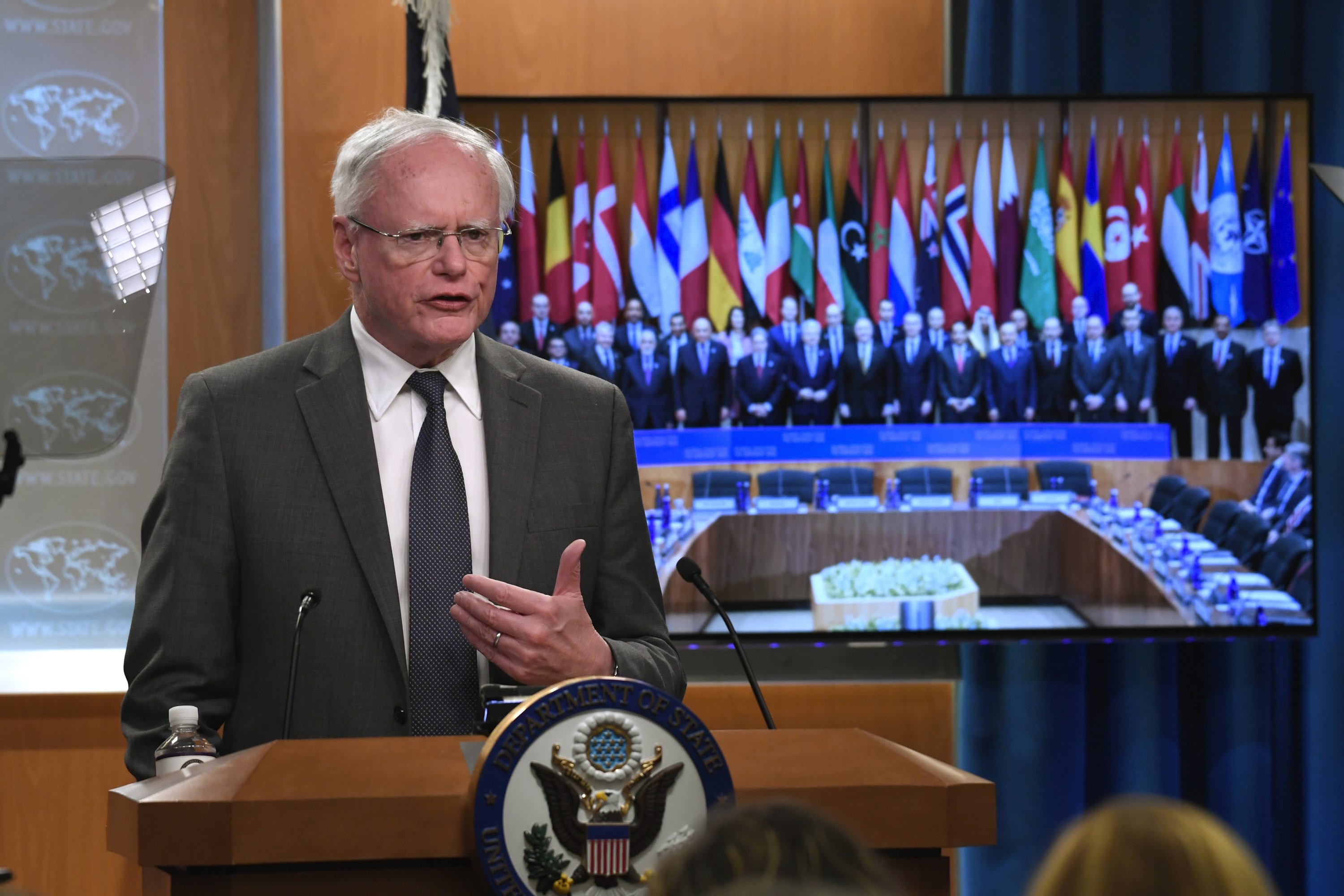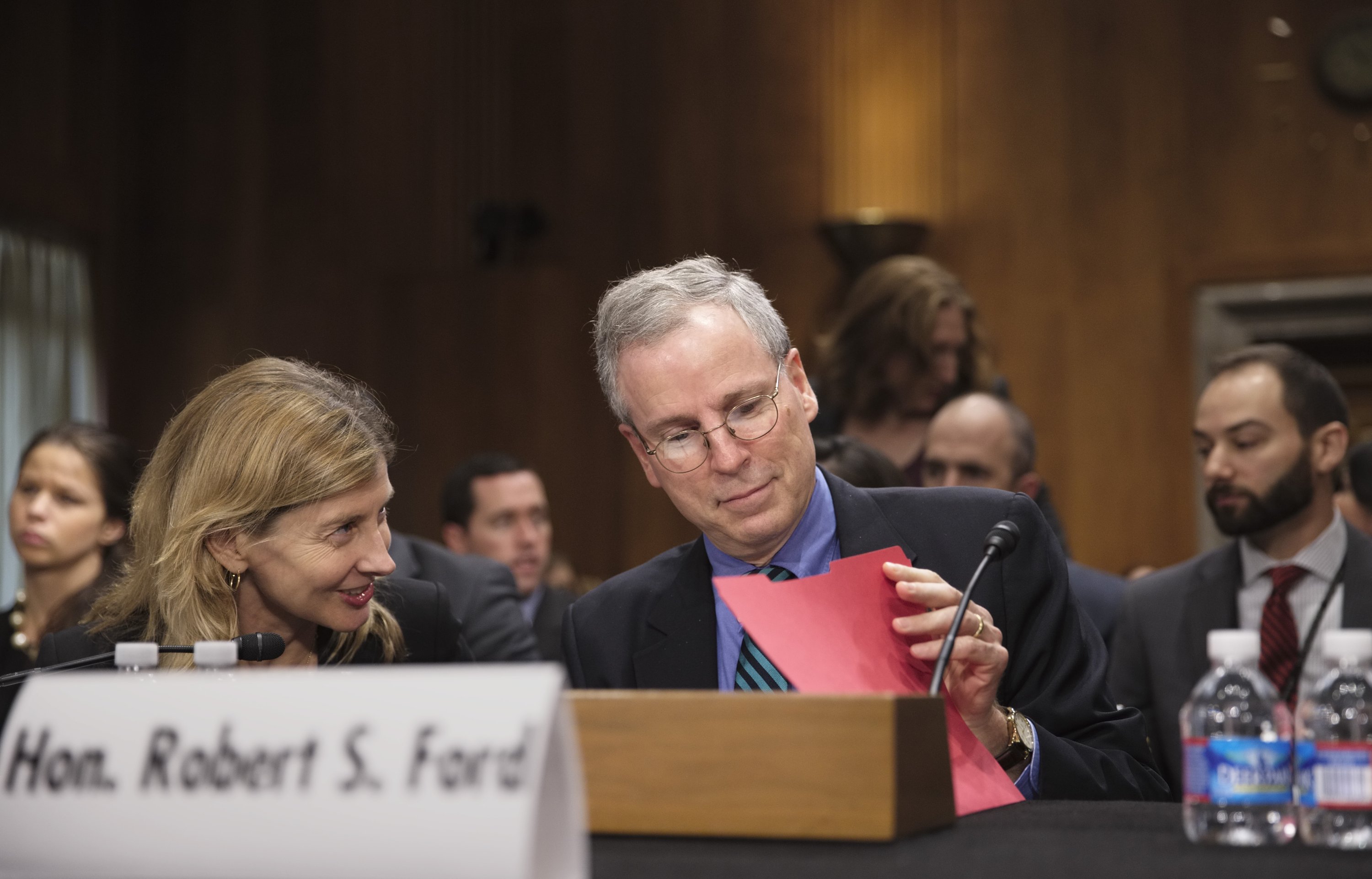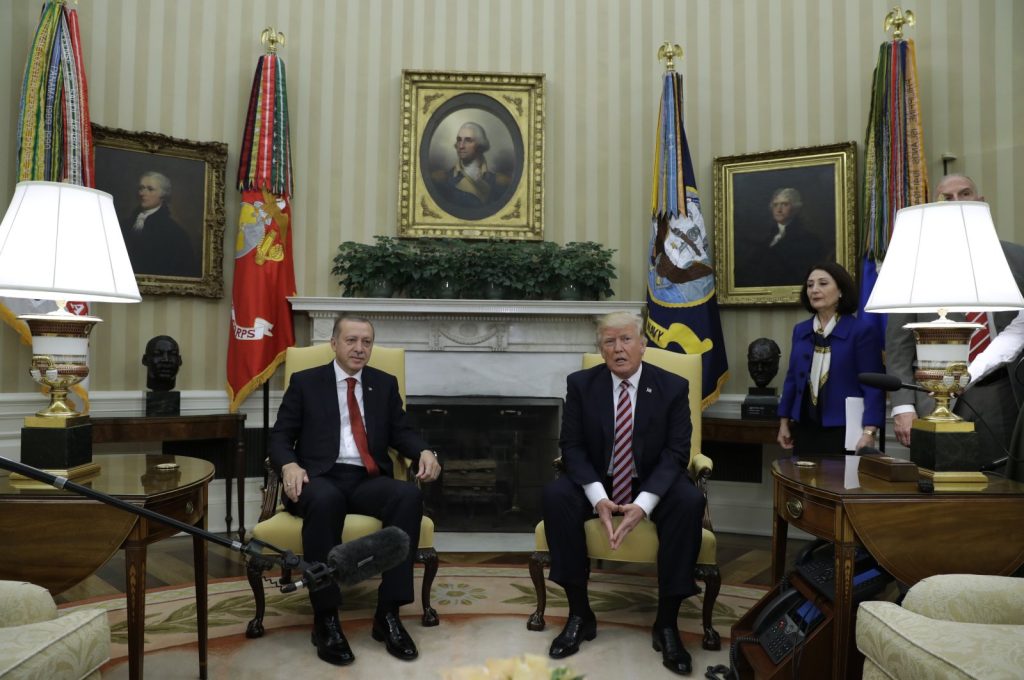In my column, published here on Nov. 6 and focused on U.S.-Türkish relations in the new Trump era, I discussed the areas the two NATO allies could collaborate or where they could face points of friction in bilateral issues or regional matters.
Then, I suggested that the new administration at the White House under President-elect Donald Trump reevaluate the realities of the “new Türkiye” and shape its relationship with Ankara with the new realities of a multipolar world order. More specifically, I proposed that the U.S. must acknowledge the fact that Türkiye is trying to protect its interests with an independent foreign policy and accept it as a partner for cooperation and not as a rival, especially when it comes to the fight against terrorism and newly emerging realities.
Focusing on the topic and how the U.S.-Türkiye relations will turn out in the new term, I discussed the topic with James Jeffrey, former U.S. ambassador in Ankara and Baghdad, who also served as assistant to the president and deputy national security advisor in the George W. Bush administration, and Robert Ford, who served as the U.S. ambassador to Syria from 2011 to 2014.
Responding to several questions I posed about bilateral issues, Jeffrey said he was “optimistic” that Washington and Ankara will have good relations in Trump’s new term “as the two presidents had good relations 2017-21.” Jeffrey, who is now a retired diplomat, is among those who acknowledge and accept Türkiye’s significance for Washington. He added, “Washington and Ankara share views on the need to maintain stability in Europe and the Middle East particularly containing Russia and Iran and fighting terrorism.”

“Türkiye can play a leading role in President Trump’s plans to reach a cease-fire in Ukraine,” Jeffrey said.
When it comes to “fighting terrorism,” the friction point is perhaps harder to overcome given the U.S.’ staunch support for the PKK/YPG terrorist group in northern Syria – for the time being. I do agree, however, that Erdoğan and Trump will have a more realistic approach when it comes to the conflict in the Black Sea region, given Trump’s desire to end the war and Erdoğan’s good relations with both Ukraine and Russia. In fact, Türkiye’s role in previous mediation efforts and the communication channels Ankara has with warring sides can pave the way for the “end” that the Trump administration is promising in Ukraine.
Robert Ford, however, said that the ties after the Jan. 20 inauguration “will depend in large part on personal relations” between Trump and Erdoğan. “Trump largely depends on his instincts in making policy decisions and therefore his appraisal of foreign leaders is very important.” I agree with the “instincts” point Ford makes. Indeed, Trump has been infamously known for his unpredictability. In addition, Trump’s relationship with Erdoğan will also be affected by Trump’s advisory team, the lobbies that supported him, and of course, his Cabinet.

“There will be major challenges in the bilateral relationship, including the question of Hamas and its future role in the region, the Syrian Democratic Forces and the YPG relationship with the PKK and American protection of the SDF, Türkiye’s use of Russian technology and the impact on U.S.-Türkiye defense trade and other trade issues, especially Turkish exports to the U.S.,” Ford also said. The list could actually be longer when it comes to friction points, such as adding the issue of the U.S. hosting the Gülenist Terror Group’s (FETÖ) leader (who died very recently) and the group’s many other members following the failed July 15 coup attempt in Türkiye. Ankara’s extradition requests have been left unanswered.
The Biden administration’s relationship with Ankara was on shaky grounds for the most part. Erdoğan rarely held one-on-one meetings with the outgoing president. On the contrary, he had what can be described as a “working” relationship with Trump, though inconsistencies and ups and downs did, indeed, exist.
Following Trump’s reelection, Erdoğan phoned the president-elect and congratulated him.
“In the new era, we will strive to advance Türkish-U.S. relations within the framework of our national interests. Of course, we analyze who is in Mr. Trump’s Cabinet and their approach, and we make our preparations accordingly. What people say and think before coming to power is not insignificant to us. However, what matters most is what they do once they assume the responsibility of power. We will take steps according to concrete actions and make our decisions based on all possibilities,” Erdoğan said on his return flight from Brazil, where he attended the G-20 summit. Türkiye’s top diplomat Hakan Fidan also echoed this position recently. “I don’t think we will have a major problem in understanding the new U.S. government, to see their reflexes,” the Turkish foreign minister said in a televised interview.
In other words, there is a “wait-and-see” approach regarding the new term though we can say that this policy is with a slight optimism, rather than drawing a fully grim picture given the disagreements that exist.
Syria disagreements
Regarding disagreements related to Syria and whether the U.S. policy for Syria will see a shift, both Jeffrey and Ford said the relationship will be shaped largely by what Trump will decide on America’s military presence in northeastern Syria.
“Syria is a question mark,” and how Trump will decide is an unknown at the moment for Jeffrey. Ford agrees with this position, saying “It is too early to know.”
“No one in Washington, Republicans or Democrats, thinks about the relationship between the YPG and the PKK, nor do they think much about connections between the YPG to previous terror attacks in Turkiye. Instead, the American concern is both the continuing presence of ISIS (Daesh) and also the presence and influence of Iran in Syria. If Ankara has ideas about how to manage these two problems without the presence of American troops in eastern Syria, President Trump would listen carefully. What he would decide, of course, is not clear,” Ford said in a rather interesting way. I say interesting because while I acknowledge and agree about Iran’s influence over Syria and the Assad regime, the fact that Washington still sees Deash as a major threat in Syria is not quite understandable. Washington’s partnership with the PKK/YPG terrorists in northern Syria in the name of fighting Daesh is no longer sustainable as that threat has been largely eliminated. Here, two points must be underlined. Firstly, the U.S. continues to partner with PKK/YPG despite it posing security threats to Washington’s NATO ally directly. Secondly, Türkiye is the only country that had an effective fight against Daesh with boots on the ground in northern Syria.
“Whether the U.S. stays or withdraws, partnering with Türkiye on northeast Syria – where the U.S. and Türkiye have had an agreement since October 2019 – and on all Syrian issues, is extremely important to avoid vacuums and to oppose the many dangerous forces in Syria,” Jeffrey said, in a relatively different position than Ford.
Gaza as another key case
Another area that may cause friction between Washington and Ankara is developments that have been taking place since Oct. 7, 2023.
Both Jeffrey and Ford said that Türkiye’s solidarity with Hamas will remain a strong disagreement point. Jeffrey, however, also added that, in a Gaza without Hamas, Türkiye and the U.S. could work together.
“It will not be a problem. Most Americans disagree with the Turkish government’s position on Hamas but agree on the need for a future for Palestinians. Hamas could never offer such a future and has been virtually destroyed. The priority now is where the U.S. and Türkiye can play key roles in stabilizing Gaza and rebuilding the area. And Washington and Türkiye share the goal of blocking Iran’s aggressive actions generally,” said Jeffrey in a relatively optimistic comment.
Ford’s comments on how disagreements on Gaza could shape new Erdoğan-Trump ties are rather more pessimistic.
“Especially if Türkiye hosts Hamas after Qatar expels it, there will be very big differences between Ankara and Washington and there will be a push among both Republican and Democratic circles in Washington to impose sanctions on Türkiye. I cannot emphasize strongly enough how harmful the Türkiye relationship with Hamas could be to bilateral relations with Washington.”
The Biden administration’s unconditional support of Israel’s genocidal actions in Gaza has been strongly criticized by Turkish officials.
The Palestinian struggle is a non-partisan issue for the Turkish public and Ankara’s position will not change over Gaza or Palestine at large until occupation and oppression stops. Moreover, Türkiye does not see Hamas as a “terrorist group” as the U.S. sees them. On the contrary, Ankara sees them as a resistance group.
“We are, of course, against terrorists. But I am one of the leaders who knows Hamas well. I have never called Hamas a terrorist organization and I do not view Hamas as a terrorist organization. Because Hamas is a resistance group that strives to protect its lands. Therefore, how can I call such a resistance group a terrorist organization?” Erdoğan said in a televised interview with NBC in late September this year.
In my opinion, what is taking place in Gaza is part of plans that are not simply limited to eliminating Hamas from Gaza. Moreover, it may be a miscalculation to turn a blind eye to Hamas’ influence and treat Hamas as a mere military group for Palestinians, and this miscalculation will be further erroneous following generations that will remember what is taking place today in Gaza by the hands of the Israeli military.
Indeed, how the Washington-Ankara relationship will unfold in the new Trump era is something to be seen. As many say, “time will tell” how things will unfold after Jan. 20.
Still, as I have mentioned in my column here previously many other times, in a period when the world is in search of a new global order and dynamics are changing with new alliances and blocs, having Türkiye on your side will be a strategic move for many capitals, be it across the EU, or in Washington.


